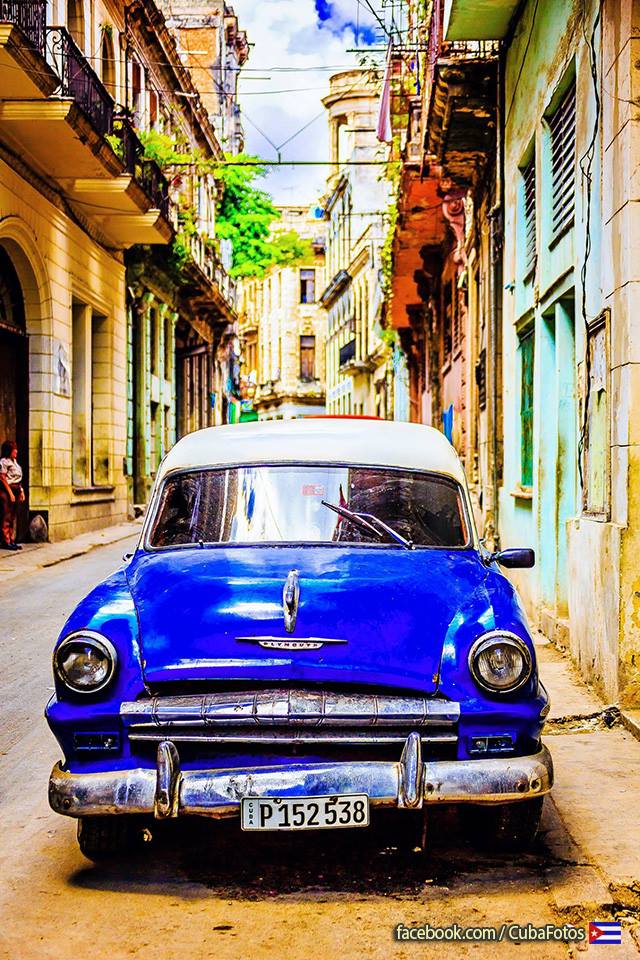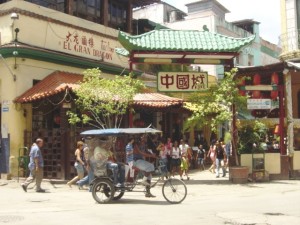![]() CHINESE DESCENDANTS IN CUBA KEEP TRYING TO PRESERVE TRADITIONS.
CHINESE DESCENDANTS IN CUBA KEEP TRYING TO PRESERVE TRADITIONS.
Chinese honor their dead in Cuba eating pork and burning bills falsos.Las families lay flowers at a monument that pays tribute. There are only 134 natural Chinese in Cuba.
Two hundred Chinese who took root in Cuba and their descendants Saturday honored their ancestors in the cemetery of Havana eating Chinese roast pork and burning counterfeits, in an attempt to preserve an ancient tradition, they say, it brings luck.
“We used many natural Chinese here and for them it was practically a party come to the cemetery, it was like a reunion with loved ones missing, but now the descendants are the ones who are trying to keep this tradition alive,” said Jorge Chao, secretary Chung Wah Casino, which directs the activities of the Chinese community on the island.
Among the descendants -quedan just 134 natural Chinese in Cuba “there are many who do not know or do not know the culture and traditions” of China, which “greatly respects to their ancestors,” said Chao.
Ching Ming Festival, meaning “clear and bright” is one of the most important holidays of the Chinese lunar calendar. It is believed that this tradition dates back to the first emperor of China, circa 220 BC.
At the cemetery, located in the center of the Cuban capital, families clean the graves, lay flowers, burn incense and wads of counterfeit notes, and share with their true ancestors banquet, a ceremony that “brings good luck,” said Chao.
“A feast where you can not miss the chicken, rice, rum, and pork (pork) roasted whole,” said Maria del Carmen Rodriguez Lang, 25, while handing out food among his relatives deployed on the family vault.
Road to the necropolis, families lay flowers at a monument that pays tribute to the Chinese who fought in “the war of independence of Cuba against Spanish colonialism.” “There was a Cuban Chinese deserter, a traitor no Cuban Chinese,” reads the plaque in black marble monolith.
Some 150,000 Chinese, mostly men, arrived on the island between 1847 and 1874 as coolies to replace the African slave labor on sugar plantations.
“Their marginalized status (…) resulted in many of them were incorporated into the independence wars and were important factor in the integration process of the Cuban nation,” the Ecured digital encyclopedia.
“Now there is no Chinese, very few in Cuba before here (in Havana) had 35,000,” said Ramon Ma, 98 years before leaving the cemetery.
Agencies / AFP / NuevoHerald / Yamil Lage/Internet photos / TheCubanHistory.com
THE CUBAN HISTORY, HOLLYWOOD.
Arnoldo Varona, Editor.
![]() DESCENDIENTES CHINOS EN CUBA TRATAN DE MANTENER TRADICIONES.
DESCENDIENTES CHINOS EN CUBA TRATAN DE MANTENER TRADICIONES.
Chinos honran a sus muertos en Cuba comiendo cerdo y quemando billetes falsos.Las familias depositan flores ante un monumento que les rinde homenaje. Quedan apenas 134 chinos naturales en Cuba.
Dos centenares de chinos que echaron raíces en Cuba y sus descendientes honraron este sábado a sus antepasados en el Cementerio Chino de La Habana comiendo cerdo asado y quemando billetes falsos, en un intento por preservar una antigua tradición que, según ellos, trae suerte.
“Antes teníamos muchos chinos naturales aquí y para ellos era prácticamente una fiesta venir al cementerio, era como un reencuentro con los seres queridos desaparecidos, pero ahora los descendientes somos los que estamos tratando de mantener esta tradición viva”, declaró Jorge Chao, secretario del Casino Chung Wah, que dirige a las actividades de la comunidad china en la isla.
Entre los descendientes -quedan apenas 134 chinos naturales en Cuba- “hay muchos que ignoran o no conocen la cultura y las tradiciones” de China, país que “respeta mucho a sus ancestros”, añadió Chao.
El festival de Ching Ming, que significa “claro y brillante”, es unas de las fiestas más importantes del calendario lunar chino. Se cree que esta tradición se remonta al primer emperador de China, hacia el año 220 antes de nuestra era.
En el cementerio, ubicado en el centro de la capital cubana, las familias limpian las tumbas, depositan flores, queman incienso y fajos de billetes falsos, y comparten con sus antepasados verdaderos banquetes, una ceremonia que “da suerte”, según Chao.
“Un banquete donde no puede faltar el pollo, arroz, ron, y el puerco (cerdo) entero asado”, explicó María del Carmen Rodríguez Lang, de 25 años, mientras repartía entre sus parientes la comida desplegada sobre el panteón familiar.
Camino a la necrópolis, las familias depositan flores ante un monumento que rinde homenaje a los chinos que lucharon en “la guerra de independencia de Cuba contra el colonialismo español”. “No hubo un chino cubano desertor, no hubo un chino cubano traidor”, se lee en la tarja del monolito en mármol negro.
Unos 150,000 chinos, casi todos hombres, llegaron a la isla entre 1847 y 1874 como culíes para sustituir el trabajo esclavo africano en las plantaciones azucareras.
“Su condición marginada (…) dio lugar a que muchos de ellos se incorporaran a las guerras independentistas y fueran factor de importancia en el proceso de integración de la nación cubana”, señala la enciclopedia digital Ecured.
“Ahora no hay chinos, muy pocos en Cuba, antes aquí (en La Habana) habían unos 35.000”, dijo Ramón Ma, de 98 años, antes de partir rumbo al cementerio.
Agencies/AFP/NuevoHerald/Yamil Lage/Internet photos/TheCubanHistory.com
THE CUBAN HISTORY, HOLLYWOOD.
Arnoldo Varona, Editor.






